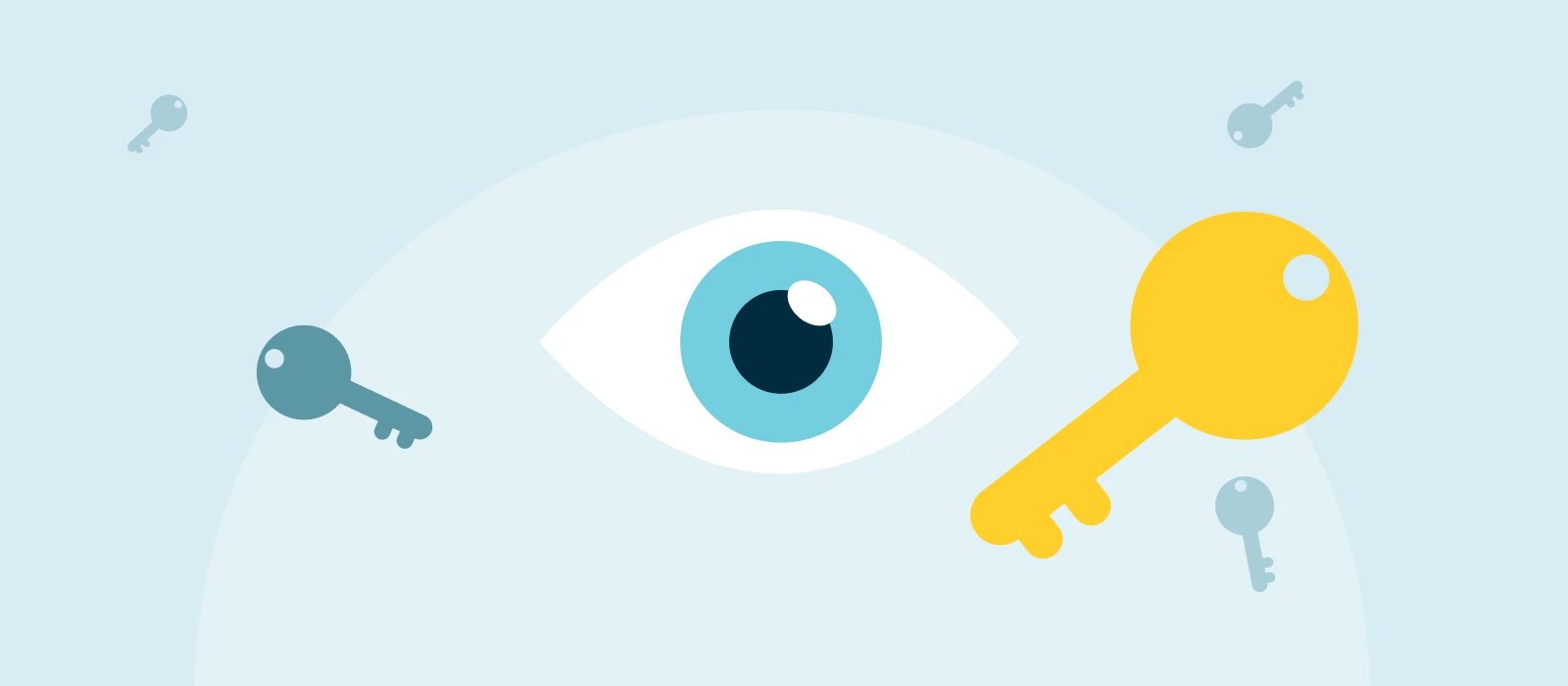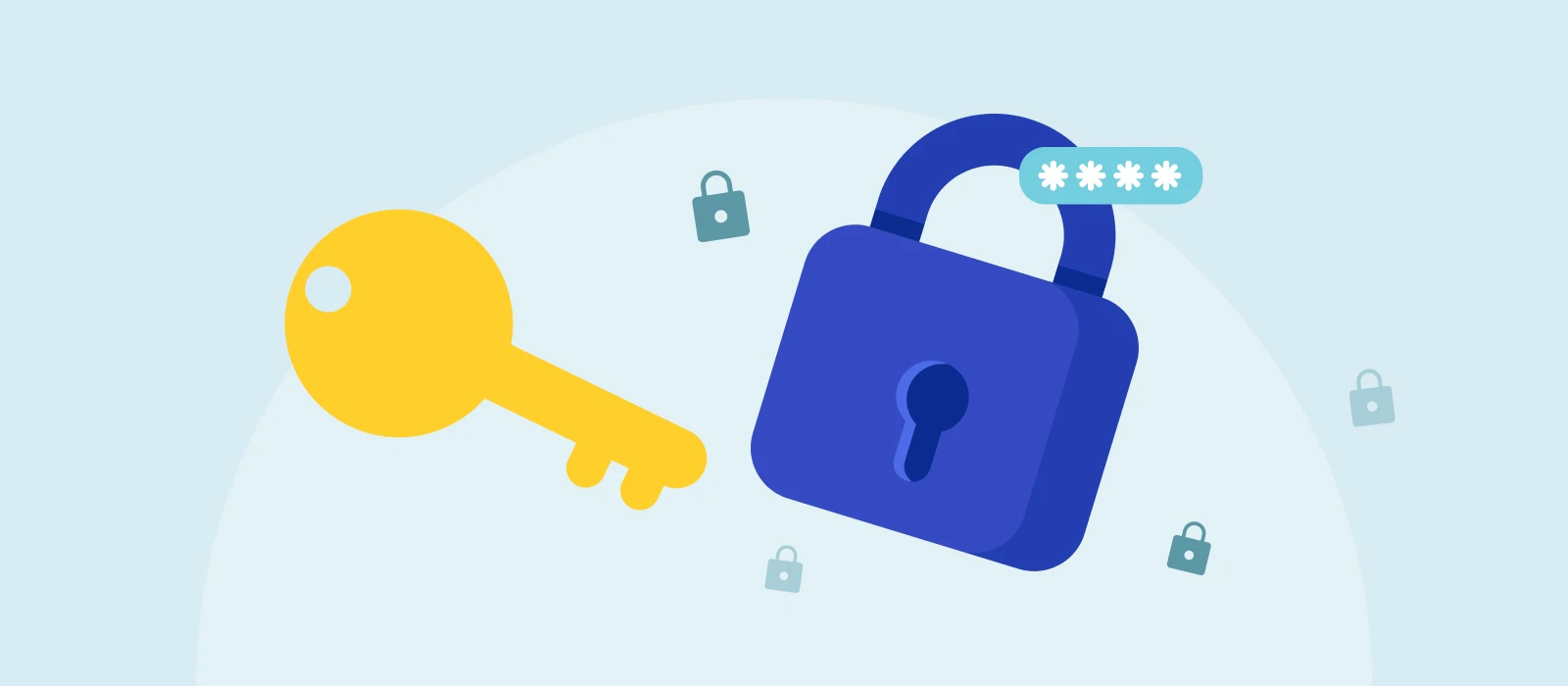Lesson 11 – What is a wallet and what types are there? – Simply & briefly explained

Wallets enable holders of cryptocurrencies to access their acquired digital cryptocurrencies. They are a necessary prerequisite for sending and receiving digital currencies. Unlike traditional wallets, cryptocurrency wallets do not actually store money. Instead, the coins and tokens exist within a blockchain system, with wallets serving an access point.
What does the term “wallet” mean in the context of cryptocurrency?
A cryptocurrency wallet is essentially software that authorizes owners of a cryptocurrency, such as Bitcoin or Ripple, to track, send, and receive it over the blockchain, akin to a bank account.
How does a wallet work?
A digital wallet is created by generating a random number from which a key-value pair, known as a public and private key, is derived. In addition, a “seed phrase” is created –– a combination of words enabling wallet recovery in emergencies.
Public and private keys
Like a PIN for a bank account, a wallet requires access. In this case, a distinction is made between “public keys” and “private keys”.

A public key is comparable to a username for a user account and uniquely identifies the wallet. A private key, on the other hand, consists of a combination of digits and letters (like a password) and corresponds to the public key.

The private key functions as a secret password for the account. Without this private key, no transactions can be approved, securing the wallet for authorized use only. Losing the key results in access loss, which can only be regained through the seed phrase*. Since both keys are generated using complex cryptographic algorithms, they always maintain the owner’s anonymity.
Hardware and software wallets
Wallets are commonly categorized as either software and hardware wallets. The latter are not web-based, but are a physical device that often resembles a USB stick (e.g., Ledger, BitBox). They are also referred to as “cold wallets” in the cryptocurrency community and represent one of the safest ways to store coins given that they are not continuously connected to the Internet.
Like most software, a software wallet comes in the form of a desktop wallet, mobile wallet, or web-based application. As opposed to a hardware wallet, this option is commonly referred to as a “hot wallet” given that it’s continuously connected to the Internet. A mobile wallet is positioned as an app on your smartphone, similar to Apple Wallet, and allows for easy transactions using QR codes. Users who frequently use Bitcoin in their daily lives are particularly fond of the mobile wallet option. Web-based wallets are mostly accessible through browsers and also allow coin transactions from anywhere. It’s worth noting, however, that with web-based wallets, your password is stored on online servers, posing a potentially higher risk. If you only trust your own infrastructure, it makes sense to create a desktop wallet (e.g. Electrum, Wasabi). This avoids the involvement of a third party and makes you solely responsible for the security of your wallet.
Which is the best cryptocurrency wallet?
Choosing a wallet is an important decision for cryptocurrency investors. There’s no definitive “best” wallet; each has its pros and cons. Many users opt for multiple wallets, which can ultimately lead to a more secure distribution of their assets. However, the best and most suitable wallet depends on individual preferences.
When selecting a wallet, consider:
-
Customer service: It’s advised to choose a wallet with a support service that is always available and helpful, especially for beginners. In the event of any difficulties, this can be extremely valuable.
-
Fees: Transactions may incur costs through third parties (“hosted wallets”). These fees should be factored in when choosing a wallet and its provider, given that they impact profits.
-
Security issues: Any reasonable individual should be aware of the risks involved in investing money. In order to minimize these risks, it’s highly advised to look into whether the provider is trustworthy and has implemented reasonable security measures.
Regardless of which crypto wallet you choose, having reliable antivirus software and vigilance against phishing emails is essential. This will ensure that you can continue to buy and store your crypto safely and securely.
If you choose to trade on BISON, an external wallet is not needed.
Sources
Imöhl, S. (2023). “Wie Sie den Zugang zu Ihrer Bitcoin-Wallet sichern”. Available at: https://www.wiwo.de/finanzen/boerse/seed-phrase-aufbewahren-so-sichern-sie-den-zugang-zu-ihrer-bitcoin-wallet-richtig/28878650.html#:~:text=Was%20ist%20eine%20Seed%20Phrase,Coins%20gegen%20den%20Zugriff%20Dritter, last accessed 12.09.2023.
Nakamoto, S. (2008). “Bitcoin: A Peer-to-Peer Electronic Cash System”. Available at: https://bitcoin.org/bitcoin.pdf, last accessed 12.09.2023.
Antonopoulos, A. M. (2014). “Mastering Bitcoin: Unlocking Digital Cryptocurrencies”. O’Reilly Media.
Ethereum Foundation (n.d.). “Ethereum Wallets”. Available at: https://ethereum.org/en/wallets/, last accessed 12.09.2023.
Ledger (2022). “What is a Crypto Wallet?” Available at: https://www.ledger.com/academy/basic-basics/2-how-to-own-crypto/what-is-a-crypto-wallet, last accessed 12.09.2023.
Electrum (n.d.). Electrum Bitcoin Wallet. Available at: https://electrum.org/, last accessed 12.09.2023.
Disclaimer
The content of this article is for informational purposes only and does not constitute financial, investment, and/or trading advice. We strongly recommend that you conduct the necessary research before making an investment, and/or trading decision. Please note that past performance does not guarantee future results.
Liability of the Börse Stuttgart Group and its subsidiaries for the article is excluded.